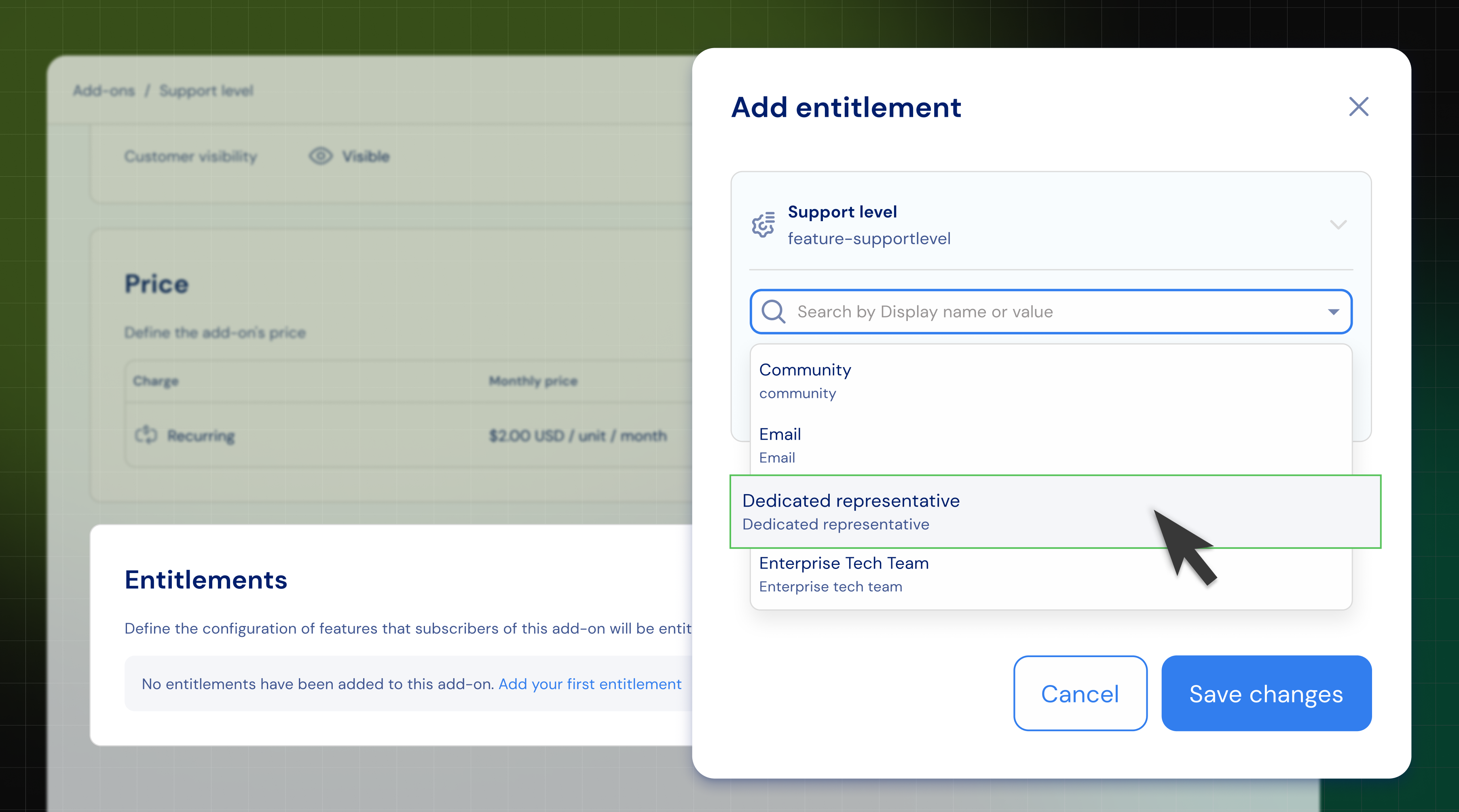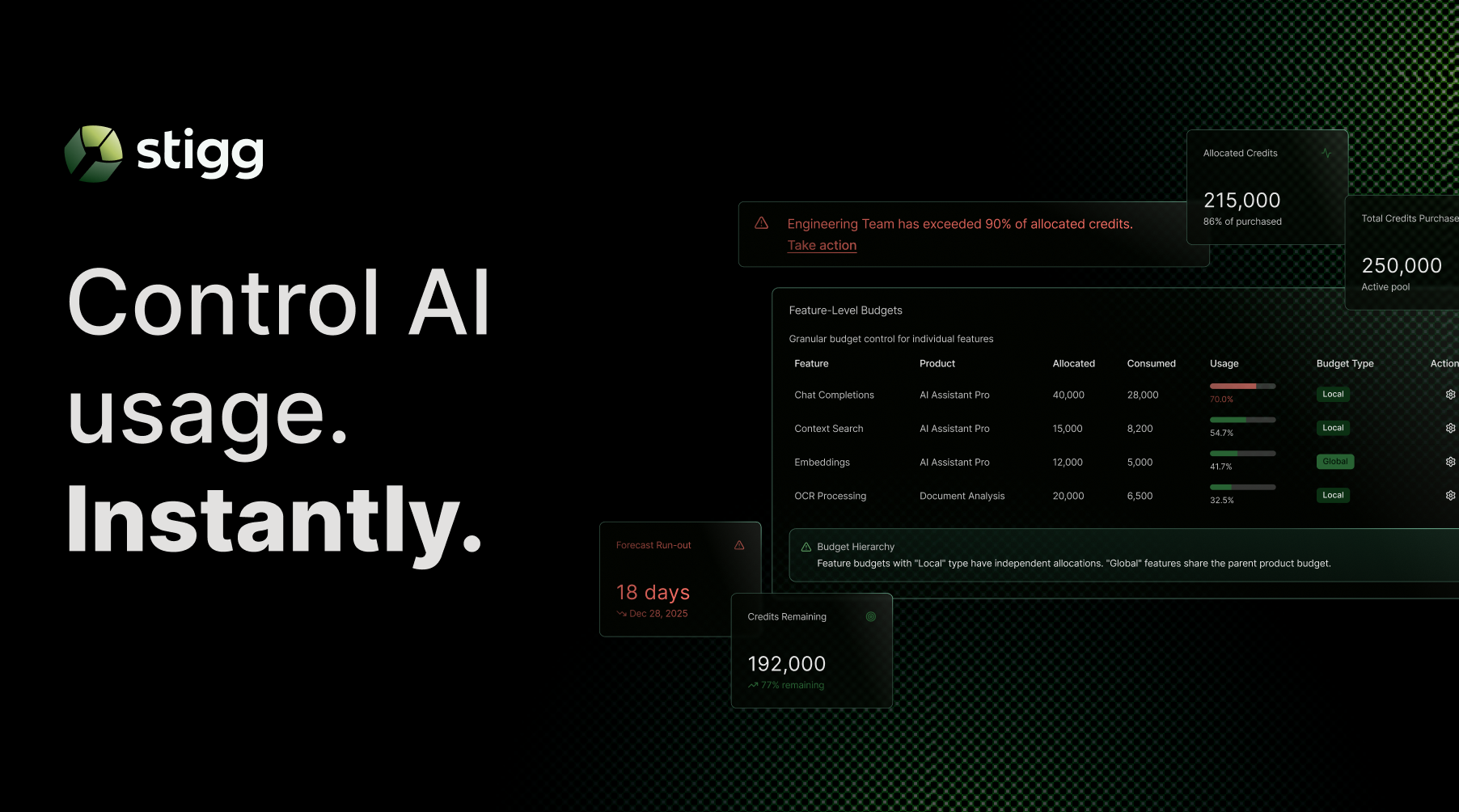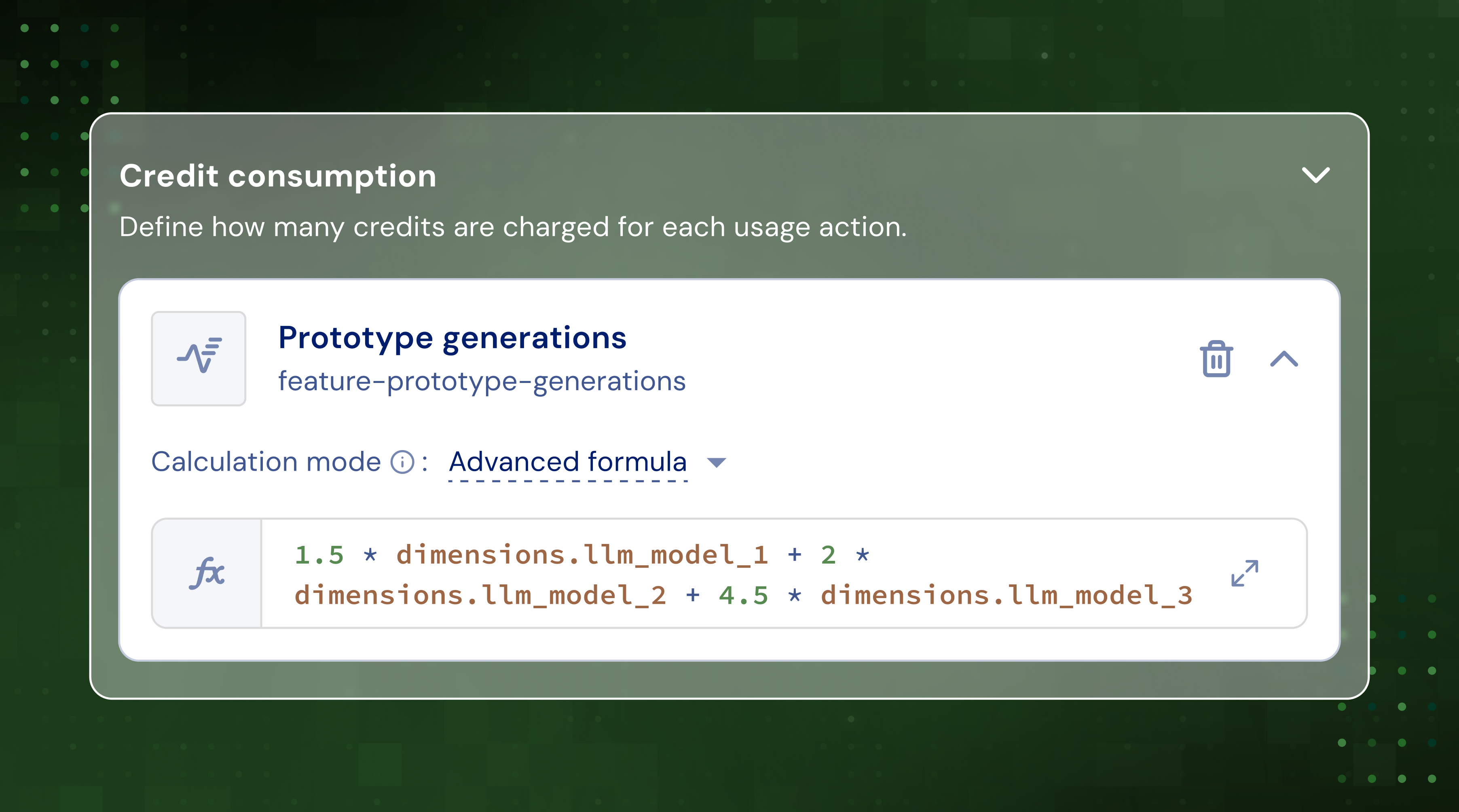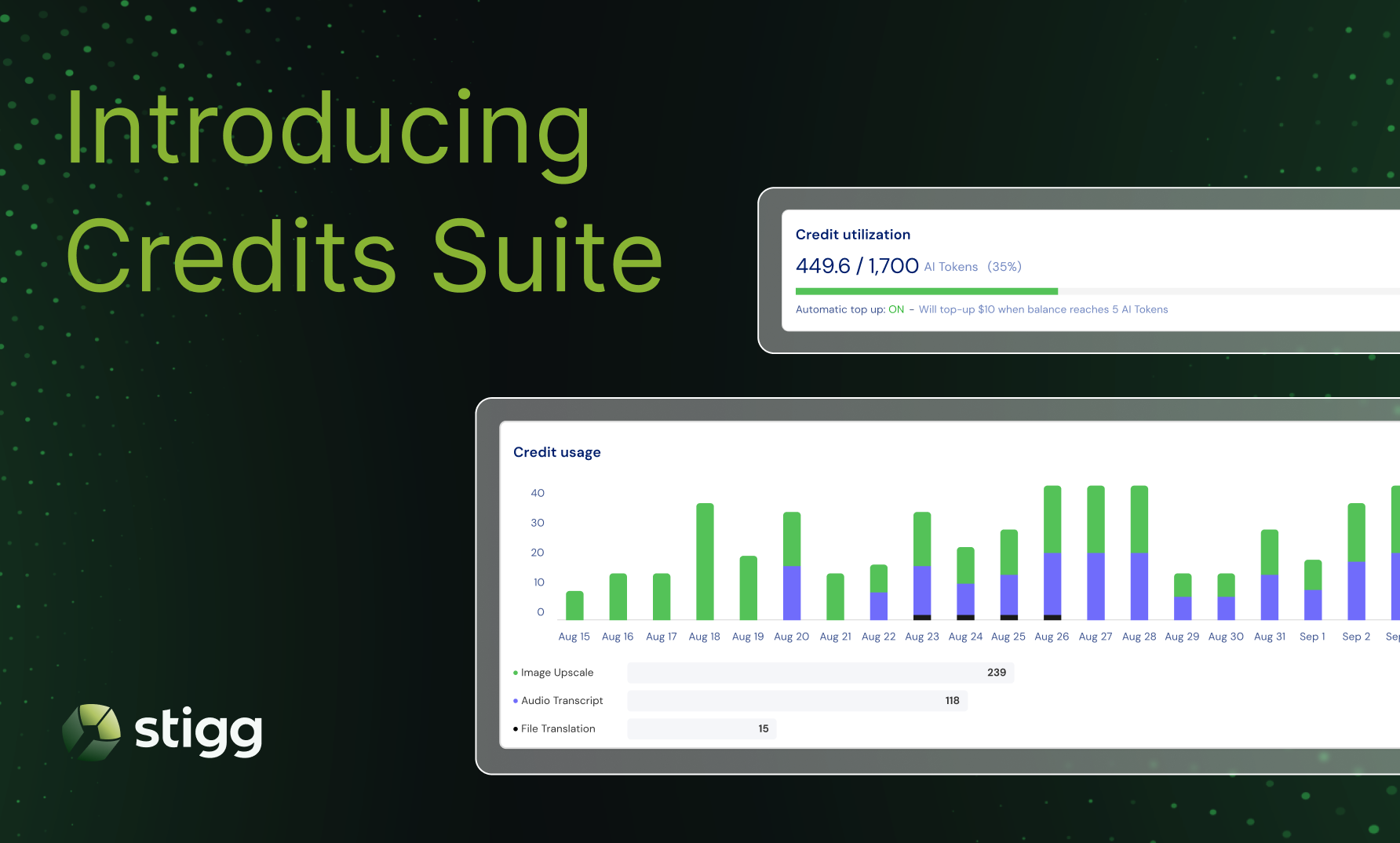Not too long ago, software was simple to buy and simple to use. You’d purchase a perpetual license, install it, and the product was yours. Then SaaS reshaped the landscape: subscriptions replaced one-time fees, usage-based and outcome-based pricing followed, and software economics became more dynamic, and more complex.
Now, AI is pushing us into another inflection point.
AI agents don’t behave like human users. They don’t “log in” a few times per day or carefully read pricing pages. They act autonomously, executing thousands of operations per minute across APIs, systems, and workflows. For agents to be useful, they need speed, continuity, and zero friction. But for companies to monetize them, we need new licensing primitives that are designed for machines, not people.
This is the backdrop for our latest release: Enum Entitlements.
What are Enum Entitlements?
At Stigg, everything revolves around entitlements, the primitives that define who gets access to what, and under which conditions. We support three main types: Boolean (on/off features like white-labeling), Metered (usage-based limits like API calls or storage), and Configuration (parameterized features like team size or available AI models, with integer or enum values). Together, these cover the full spectrum of packaging needs, from simple toggles to advanced plan-specific controls. You can learn more in our docs.
Enum Entitlements are the newest addition to this model, a sub-type of Configuration, and they allow you to define features in terms of selectable, predefined values. Instead of treating configurations as free-form fields, enums introduce structure and guardrails.
For example, a product team might define “allowed AI models” as GPT-3.5, GPT-4, or Claude, each available on different plans. A customer support tool might distinguish between community support, email support, or a dedicated CS rep. A global product might gate access by region - US, UK, India. And critically, in an agent-driven world, companies could assign agents different rate limit configurations by simply selecting the right enum value.
By giving feature configurations discrete, validated options, enum entitlements make packaging more dynamic and far less error-prone. They’re fully supported across Stigg’s APIs, SDKs, and app, so they slot directly into existing workflows without additional overhead.
Why it matters
The introduction of enum entitlements is more than just a quality-of-life improvement for developers. It’s a step toward building the foundation for what we call Agentic Licensing, a model where access, control, and trust are expressed through entitlements rather than seats or clicks.
Traditional rate limits and feature toggles were designed for humans. But agents need clear, enforceable boundaries that map to business value, not arbitrary ceilings. With enums, you can express exactly what an agent is allowed to do - which models it can call, which geographies it can operate in, which tier of performance it can access - without bending old human-centric licensing models out of shape.
In other words, enums make entitlements more granular and expressive, while setting the stage for a new way of thinking about software consumption in the AI era.
Looking ahead
Like many primitives, enum entitlements are deceptively simple. But simplicity is a strength. By making feature configurations more structured and enforceable, they give product teams a reliable way to experiment with packaging strategies, while laying the groundwork for new licensing models designed for autonomous software agents.
The future of monetization won’t be built on human logins and static seats. It will be built on entitlements, scoped, dynamic, and machine-aware. Enum entitlements are our latest step in that direction.
Ready to try it out? Update to the latest SDKs or book a personal demo.




